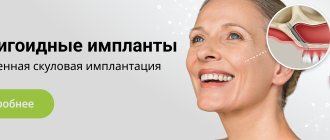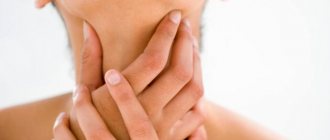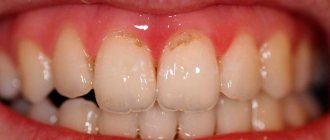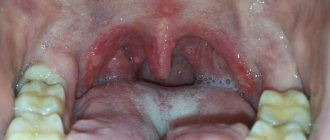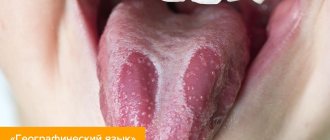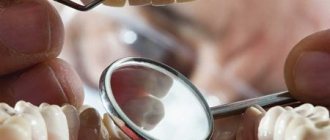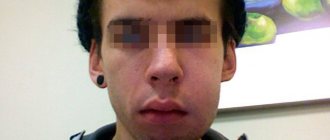When is it time to sound the alarm? Symptoms and stages of tooth decay
There are a number of signs that should alert you. Having noticed one or two of them, a person should become concerned and see a specialist. This:
- 1. Accumulation of plaque on tooth enamel. Barely noticeable yellowish spots.
- 2. Bad breath, even the smell of rotten breath. With severe caries, the smell will be very noticeable.
- 3. Dark spots on the enamel. Painful sensations when eating hot or cold, sweet foods.
- 4. If you ignore the above-mentioned manifestations of ill health, the situation gets worse. Next, black areas appear in the area of the neck of the tooth or on the root itself, but the latter can only be detected during an X-ray examination.
- 5. Frequent aching painful sensations appear, and even if you regularly rinse your mouth with herbal infusions and take painkillers, the destructive processes are in full swing.
- 6. The pain intensifies (especially when a stream of cold air hits the tooth), and the pulp begins to die.
- 7. The nerve bundle is affected, the pain becomes especially severe.
- 8. Then, if the person never went to the hospital, he notices with surprise and relief that the pain goes away. However, in reality, the inflammatory process does not stop - the disease spreads to the root area.
Predisposing factors
Bleeding gums can be caused by injury or disease. But there are a number of factors that make the risk of this symptom appearing higher.
Gums bleed in patients:
- with chronic inflammatory diseases of the oral cavity;
- with xerostomia - dry mouth;
- with reduced immunity, including HIV and AIDS;
- with vitamin deficiency, especially C and K;
- with mouth breathing;
- with poor or irregular oral hygiene.
These factors cannot be called the cause, but they contribute to the development of bleeding gums. Those for whom none of the points apply have a much greater chance of not learning about such a problem.
If your gums bleed in the morning or at night
Peak bleeding at night or in the morning indicates an unsuitable toothbrush. During brushing, the gums are injured. In this case, you need to visit the dentist and take a hygiene lesson with the selection of personal hygiene products.
Bleeding gums may not be normal. It is definitely worth finding out the cause and treating it before the disease reaches a chronic stage.
Complications and consequences that will not keep you waiting if your teeth are not treated
A far-fetched fear is extremely harmful: because of it, patients often take the situation to extremes and go to the doctor only when the disease spreads to neighboring teeth and gums, and serious intervention is required.
Deterioration of the general condition of the body
There is a misconception that bad teeth have no effect on the body as a whole. And that “one day the moment will come...” - the teeth will be cured, and there can be no complications. The immune system actually copes with the infection up to a certain point, and the problem is localized in the oral cavity. But one day the strength of the immune system weakens, because... he receives no help from outside. General intoxication of the body develops, which is poorly diagnosed, but manifests itself very clearly.
Intoxication is expressed in constant fatigue, fluctuations in body temperature, etc. The prolonged presence of rotten teeth leads to the following consequences:
- 1. Cardiac dysfunction. Endocarditis is an inflammation of the inner lining of the heart, which can only be treated surgically;
- 2. Loss of appetite. Impaired functioning of the gastrointestinal tract due to the entry of harmful microorganisms into it with saliva. Development of gastritis, food intoxication;
- 3. Frequent headaches due to tooth decay at the base of the root;
- 4. Many doctors are sure that bad teeth can cause problems with bone tissue and harm the musculoskeletal system. Arthrosis and polyarthritis often develop;
- 5. It has been scientifically proven that rotting of large chewing teeth leads to hair loss on the back of the head; destruction of small chewing units leads to baldness of the temporal part;
- 6. Rotting of any bone in the skull leads to brain damage;
- 7. Hearing impairment;
- 8. Poor condition of the skin;
- 9. An advanced putrefactive process spreads to the sinuses and can provoke chronic tonsillitis, hyperplasia of nasopharyngeal tissue, etc.
Pulpitis is a consequence of caries
The most common complication of caries is pulpitis. In fact, it is a natural consequence of caries and does not threaten a healthy tooth. With pulpitis, the dental nerve becomes inflamed; the disease is characterized by particularly severe pain when pressing on a tooth (biting on food).
A person can determine for himself when caries turns into pulpitis. With caries, pain appears only if a certain irritant acts on the diseased tooth. The unpleasant sensations disappear as soon as the irritant is eliminated. With pulpitis, pain can occur on its own. It can only be eliminated by the intervention of a doctor. A pain reliever will also help, but this is a short-term measure that loses effectiveness with frequent use. Taking painkillers is allowed only when it is not possible to visit the dentist. Their effect is only to relieve or weaken the pain syndrome; they do not have a therapeutic effect.
Periodontitis
If for some reason pulpitis has not been cured, the disease develops further. The ligaments that attach the tooth to the bone are affected.
Periodontitis has 2 phases:
- 1. Acute, characterized by severe pain;
- 2. Chronic – this phase may practically not appear.
Bad breath due to bleeding gums
Bleeding from the gums is often accompanied by bad breath. There are several reasons for this:
- proliferation of bacteria against the background of inflammation;
- accumulation of soft and hard dental plaque;
- the presence of deposits under the gum that are not visible to the naked eye.
An unpleasant odor is a formidable symptom, since it does not appear immediately. This means the disease is already progressing. It is impossible to find out the cause and eliminate it on your own (without a dentist); The pathology will become chronic and it will be more difficult to cure.
How to protect yourself from complications of dental diseases
To avoid any complications, it is best to prevent the diseases themselves. There is nothing complicated here:
- 1. Brushing your teeth twice daily. In this case, it is necessary to change your toothbrush in a timely manner (usually once every three months) and carefully choose toothpaste, taking into account the doctor’s recommendations;
- 2. Regular visits to the dentist. If you go to the doctor every six months, you will be able to either completely avoid caries, or cure it at the earliest stage - quickly and without any discomfort;
- 3. If a tooth has been removed or deformed (part of it has broken off, a filling has fallen out), you also need the help of a doctor. Such violations spoil the bite, and the load on neighboring teeth will increase. They will become more vulnerable to adverse effects.
Of course, to avoid complications, you should immediately consult a specialist as soon as a pathological process or painful sensations are noticed.
A lump with pus on the gum against the background of bleeding
The appearance of a tumor on the gum can frighten anyone. The presence of a round swelling against the background of bleeding gums indicates one of the diseases:
- periodontitis - destruction of the soft tissue around the tooth with the formation of a characteristic lump;
- periodontitis - the presence of a capsule with pus on the gum due to destruction of the tooth root;
- intragingival fistula - a lump with pus inside, the contents of which, when ruptured, come out, significantly facilitating the patient’s well-being;
- periostitis (flux) - a red spherical formation on the gum, the appearance of which is accompanied by swelling of the cheeks and enlargement of the nearest lymph nodes;
- epulis is a neoplasm that does not contain pus, resulting from mechanical damage to the soft tissues of the oral cavity;
- Gingivitis is a painless lump on the gum.
Most of these conditions require urgent medical attention. If pus gets into the bloodstream or into the internal tissues of the tooth, it not only leads to severe pain, but also poses a fatal danger. If a lump appears on your gum, you should immediately go to see a dental surgeon. He will determine the cause of its formation and select treatment.
Ways to stop ichor after tooth extraction
After tooth extraction, the dentist carries out a number of measures to stop bleeding:
- installation of a tampon impregnated with special medicinal substances;
- application of a hemostatic sponge;
- prescribing medications for better blood clotting;
- suturing the damaged area.
During normal tooth extraction, to stop bleeding, it is enough to use a tampon, which is held pressed for thirty minutes. If complications arise to stop bleeding, more radical measures are used in the form of suturing; this technique is used in case of damage to the artery. When small vessels are damaged, coagulation (cauterization of ruptured vessels) is most often used. After removing a wisdom tooth or several teeth located nearby, additional sutures are applied to prevent the development of complications.
If it is impossible to quickly determine the cause of bleeding, injections with substances are administered to stop the bleeding. Two methods are used for this:
- Intramuscular injection of Vikasol solution one percent;
- Intravenous injection of a solution of the following components: ten percent calcium chloride solution, calcium gluconate.
If bleeding occurs at home, you need to prepare a small tampon or sterile bandage. Place on the damaged area, after thoroughly washing your hands, and eat for a period of forty minutes. If this method does not help stop the ichor, it is necessary to prepare a new tampon, which must be moistened with a three percent solution of hydrogen peroxide. This solution has a clotting effect on the blood. Apply the tampon for five to ten minutes.
If the bleeding cannot be stopped, you should consult a doctor as soon as possible.
How to stop bleeding at home?
We will describe several effective methods that allow you to stop bleeding without the help of doctors:
- Using a thick swab of bandages. It must be pressed tightly onto the wound and, after soaking in blood, replaced with a new one soaked in 3% hydrogen peroxide. Only sterile bandages are suitable for this purpose. All manipulations should be carried out with clean hands, and preferably with sterile gloves.
- Decrease in blood pressure (if it has risen). To do this, you need to take special medications, for example, captopril, nifedipine or verapamil.
- Use of a hemostatic sponge. It contains human blood, which increases antiseptic properties. You need to very carefully apply it to the wound, cover it with a tampon, and then remove it when the sponge has dissolved.
- Ice pack. First you need to lie down and apply an ice pack to the outside of your cheek for 10-15 minutes. Breaks should be approximately the same length. It will take 5 repetitions. It is important not to apply anything to the gum itself!
Causes of ichor after tooth extraction
Associated factors influencing the duration of ichor discharge after tooth extraction:
- damage to blood vessels;
- inflammatory reaction in damaged tissues;
- hypertensive crisis;
- poor blood clotting indicators.
When a patient has hypertension, the risk of severe bleeding from the site of the extracted tooth increases. This is due to taking medications that lead to blood thinning. Experts recommend stopping taking such medications a couple of days before the planned surgery.
Also a dangerous factor is the presence of low blood clotting in the patient. In this case, it is recommended to take a course of sedatives to prevent surges in blood pressure.
